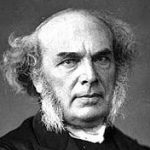Biblical Truth: Accepting Jesus as God’s Son is an act of faith, not a conclusion based on demonstrable proof.
Many People Want Proof: John 6:30-31.
[30] So they said to Him, "What then do You do for a sign, so that we may see, and believe You? What work do You perform? [31] Our fathers ate the manna in the wilderness; as it is written, ‘HE GAVE THEM BREAD OUT OF HEAVEN TO EAT.’" [NASU]
[30] The Jews demand for a sign is rather curious in that they have just seen a miraculous sign, and had they been spiritually aware would probably have known of another. Indeed, the plural in verse 26 implies that they had seen several signs. But they had not penetrated to the spiritual significance of what they had seen. They observed only the wonders, and for some reason, these did not satisfy them. See and believe puts the priority on sight. They do not understand the nature of faith.
[31] The kind of sign they want is illustrated by the manna in the wilderness. In a way this is a strange choice, for the multiplication of the loaves in the early part of this chapter seems to be a sign of exactly the same type. But it took place on one occasion: Moses gave the manna for forty years. Jesus gave bread to five thousand: Moses supplied manna to a whole nation. Jesus gave them ordinary bread, bread such as they ate every day: Moses gave bread out of heaven. Add to this a Jewish expectation that when the Messiah came He would give men manna once more, and we see that there was much that might arouse speculation. Jesus had done something wonderful in multiplying bread. Could He go on from there and produce manna? They support their plea with a quotation apparently from Psalm 78:24. Though they do not mention his name they apparently apply the quotation to Moses. The manna accredited Moses.
Proof Does Not Yield Faith: John 6:35-36,41-42.
[35] Jesus said to them, "I am the bread of life; he who comes to Me will not hunger, and he who believes in Me will never thirst. [36] But I said to you that you have seen Me, and yet do not believe.”
[41] Therefore the Jews were grumbling about Him, because He said, "I am the bread that came down out of heaven." [42] They were saying, "Is not this Jesus, the son of Joseph, whose father and mother we know? How does He now say, ‘I have come down out of heaven’?" [NASU]
[35] In view of His opponents’ misunderstanding of His claim to be the bread of God, Jesus now speaks plainly. I am the bread of life, a claim repeated at the end of the section [48]. Most of the intervening verses are an exposition of this theme and its entailments, cast for the most part in terms that are relatively independent of the bread metaphor. Verse 35 not only specifies that Jesus is the bread of life, but removes another of His opponents’ implicit misunderstandings. When they said always give us this bread [34], they were suggesting that the bread of heaven needed to be given again and again. But Jesus insists, he who comes to Me will not hunger. The thought is not unlike 13:9-10: the person who has been washed by Jesus does not need another bath, but only to wash his feet. So the hungry and thirsty person who comes to Jesus finds his hunger satisfied and his thirst quenched. This does not mean there is no need for continued dependence upon Him, for continued feeding upon Him; it does mean there is no longer that core emptiness that the initial encounter with Jesus has met.
Three further notes are in order: (1) The image of thirst is added to hunger, thereby anticipating verses 53ff. (2) The essentially symbolic nature of bread of life and related expressions in this discourse is disclosed by the mingling of metaphorical and non-metaphorical elements. Jesus is the bread of life, but it is the person who comes to Him who does not hunger, not the person who eats Him; similarly, it is the person who believes in Him who does not thirst, not the person who drinks Him. Thus, when the language becomes more rigorously metaphorical in verses 49ff., and we read of eating Jesus’ flesh and drinking His blood, the meaning of the metaphors has already been established. (3) The expression I am the bread of life is the first of seven similar claims, each with I am and a predicate.
[36] As Jesus charged the citizens of
[41-42] The Jews who grumble must be either the synagogue congregation of
Faith is a Work of God: John 6:43-47.
[43] Jesus answered and said to them, "Do not grumble among yourselves. [44] No one can come to Me unless the Father who sent Me draws him; and I will raise him up on the last day. [45] It is written in the prophets, ‘AND THEY SHALL ALL BE TAUGHT OF GOD.’ Everyone who has heard and learned from the Father, comes to
[43-44] The grumbling was not only insulting, but dangerous: it presupposed that divine revelation could be sorted out by talking the matter over, and thus diverted attention from the grace of God. So long as a man remains, and is content to remain, confident of his own ability, without divine help, to assess the meaning of experience, he cannot come to the Lord, he cannot believe. Only the Father can move him to this step, with its incalculable and final results. The thought of 44 is the negative counterpart to verse 37a. The latter tells us that all whom the Father gives to the Son will come to Him; here we are told that no one can come to Him unless the Father draws him. The combination of verses 37a and 44 prove that this drawing activity of the Father cannot be reduced to what theologians sometimes call prevenient grace dispensed to every individual, for this drawing is selective, or else the negative note in verse 44 is meaningless. Many attempt to dilute the force of the claim by referring to 12:32, where the same verb for ‘to draw’ occurs: Jesus there claims He will draw all men to Himself. The context shows rather clearly, however, that 12:32 refers to ‘all men without distinction’ (i.e. not just Jews) rather than to ‘all men without exception.’ Yet despite the strong predestinarian strain, it must be insisted with no less vigor that John emphasizes the responsibility of people to come to Jesus, and can denounce them for refusing to do so [e.g. 5:40].
[45-47] Jesus proceeds to explain what kind of drawing the Father exercises. When he compels belief, it is not by the savage constraint of a rapist, but by the wonderful wooing of a lover. Otherwise put, it is by an insight, a teaching, an illumination implanted within the individual, in fulfillment of the Old Testament promise found in Isaiah 54:13: And they shall all be taught of God. This need for internal illumination is a commonplace of both Testaments. Verse 45 must not be interpreted to mean that a person may enjoy a direct, personal, mystical knowledge of God apart from the revelation that has been given in Jesus. Only Jesus has seen the Father. Jesus Himself is the mediator of such knowledge: He is the one who narrates God. Thus, however much people are unable to hear Jesus because of their moral delinquency [8.43], however much they can hear Him only if they are ‘taught by God’, it is simultaneously true to say that they are taught by God if and only if they truly hear Jesus. Only then will they be truly attracted to Him. Those who believe, in a context like this, cannot approach Jesus as if they are doing Him a favor, or, worse, as if they know what is best for Him. They must believe, but they do so on His terms, and by His grace.
Faith Believes Without Proof: John 6:66-69.
[66] As a result of this many of His disciples withdrew and were not walking with Him anymore. [67] So Jesus said to the twelve, "You do not want to go away also, do you?" [68] Simon Peter answered Him, "Lord, to whom shall we go? You have words of eternal life. [69] We have believed and have come to know that You are the Holy One of God." [NASU]
[66-67] Doubtless these many disciples are those who found His earlier discourse intolerable [60]. Jesus’ additional remarks have done nothing to remove the offence they have found in His words. He did not expect it to be otherwise, and would not shape His comments to pander to their taste. What they wanted, He would not give; what He offered, they would not receive. These Galileans thus joined the earlier
[68-69] The verbs ‘to believe’ and ‘to know’ are extremely common in John, and are frequently roughly synonymous (see the parallelism in 17:8). There is one absolute distinction: Jesus Himself is said to know God [7:29; 8:55; 10:15; 17:25], but never to believe in Him. To believe apparently has overtones of dependence appropriate to creatures, redeemed creatures, but not to the One who is both the agent of creation [1:3] and their redeemer. Knowledge in John is frequently personal (it is knowledge of God and of Jesus Christ that constitutes eternal life, 17:3), but no less frequently propositional (as here: the disciples know that Jesus is such and such).
Questions for Discussion:
1. What is implied by Jesus’ statement: I am the bread of life in v. 35? How is the coming in v. 35 different from the seeking in v. 26? What makes this difference?
2. What does it mean for the Father to “draw” one to the Son (v.44)? Look at other verses where this word is used: John 18:10; 21:6,11; Acts 16:19; 21:30; James 2:6. From these verses what observations can you make about the meaning of “draw”? How does the Father draw us to Christ? What means does the Father use in order to draw us? What do verses 45-46 tell us about the way God draws us? See also Jeremiah 31:3,Hosea 11:3-4 and John 12:32. Who is the principal agent in the drawing process (see v. 63)? What comfort and assurance does this teaching bring you?
References:
The Gospel According to John, D. A. Carson, Eerdmans.
The Gospel According to John, Leon Morris, Eerdmans.

















